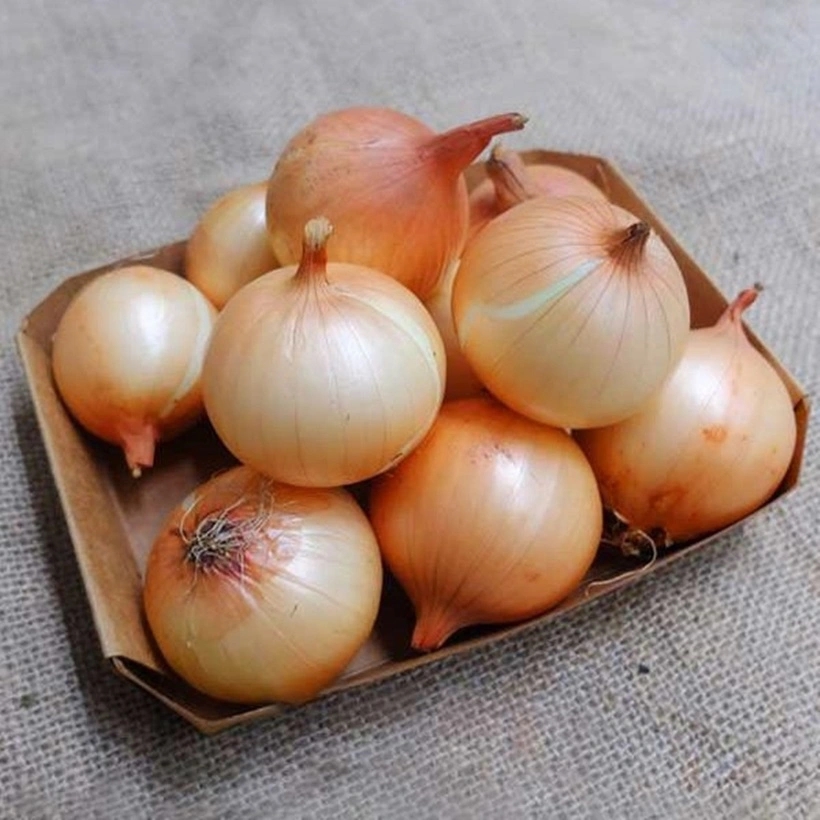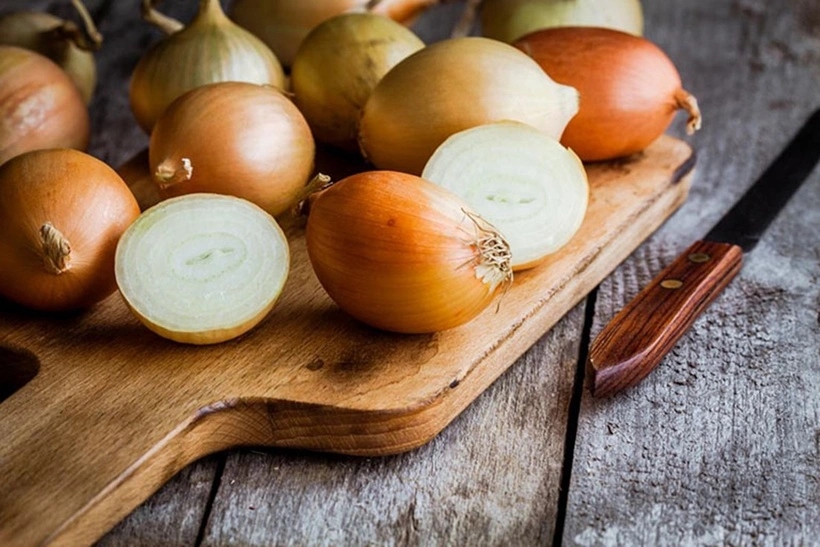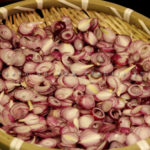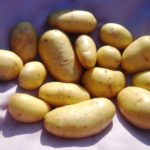When it comes to choosing onions at the grocery store or market, you may be unsure whether to opt for heavier or lighter bulbs. Selecting the right onions not only impacts the flavor of your dishes but also helps you maintain a healthy diet and save costs. This article will guide you on how to choose the best onions and provide some tips on selecting the right ones.
Should You Buy Heavy or Light Onions?
Heavy Onions
Pros
Heavier onions tend to have denser flesh, containing more water and nutrients. This adds a richer and fresher taste to your dishes. Heavy onions are usually freshly harvested and haven’t dried out or lost moisture yet.
Cons
Due to their higher water content, heavy onions may not keep as long as lighter ones if not stored properly. They are also prone to spoilage. Heavy onions might be more expensive due to their larger size.

Heavy or light onions – which is better? Tips for choosing the best onions.
Light Onions
Pros
Lighter onions are easier to store and tend to last longer because they contain less water, reducing the risk of mold or rot. They are usually more affordable due to their smaller size.
Cons
Light onions can be drier, less juicy, and less nutritious, making them less appealing in dishes. They may have been stored for a longer period, causing them to lose their initial freshness.
So, Which Is the Better Choice: Heavy or Light Onions?
For immediate use: If you plan to use onions right away in your daily cooking, go for heavy onions. They will provide the freshest flavor and the highest nutritional value.
For long-term storage: If you want to buy onions for long-term storage, choose light onions. They are easier to store and less prone to spoilage than heavy onions.
Tips for Choosing the Best Onions
Skin
The skin of a good onion should be shiny, evenly colored, and smooth, with no black spots. Choose onions with thin, dry skin that fits tightly around the bulb. Avoid onions with cracked, damp, or moldy skin.
Shape
Look for onions with a round, uniform shape. Avoid misshapen, flat, or elongated onions, as they may be of lower quality.
Bulb
Choose firm and solid onions with no soft spots or cracks. Gently shake the onion; if you don’t hear any rattling, it’s a good sign.

Heavy or light onions – which is better? Tips for choosing fresh onions.
Roots
Select onions with a good number of long root fibers, indicating freshness. Avoid onions that have completely lost their roots, as these have likely been stored for a long time and are no longer at their best.
Aroma
Choose onions with a mild, pleasant aroma, not a strong, pungent smell. Onions with a sharp smell are likely older and past their prime.
Weight
Go for onions that feel relatively heavy for their size. Heavier onions tend to have more water and nutrients. Avoid very light onions, as they may be shriveled or damaged inside.
Notes
Buy onions that are in season to ensure the best quality. Store onions in a cool, dry, and well-ventilated place. Avoid keeping them in the refrigerator, as this can affect their flavor and nutritional value.
Whether to choose heavy or light onions depends on your needs and intended use. Heavy onions are ideal for dishes where fresh flavor is essential, while light onions are perfect for long-term storage. Consider your preferences and make an informed choice to ensure you always have the best onions for your family’s meals.
According to Life and Law




































